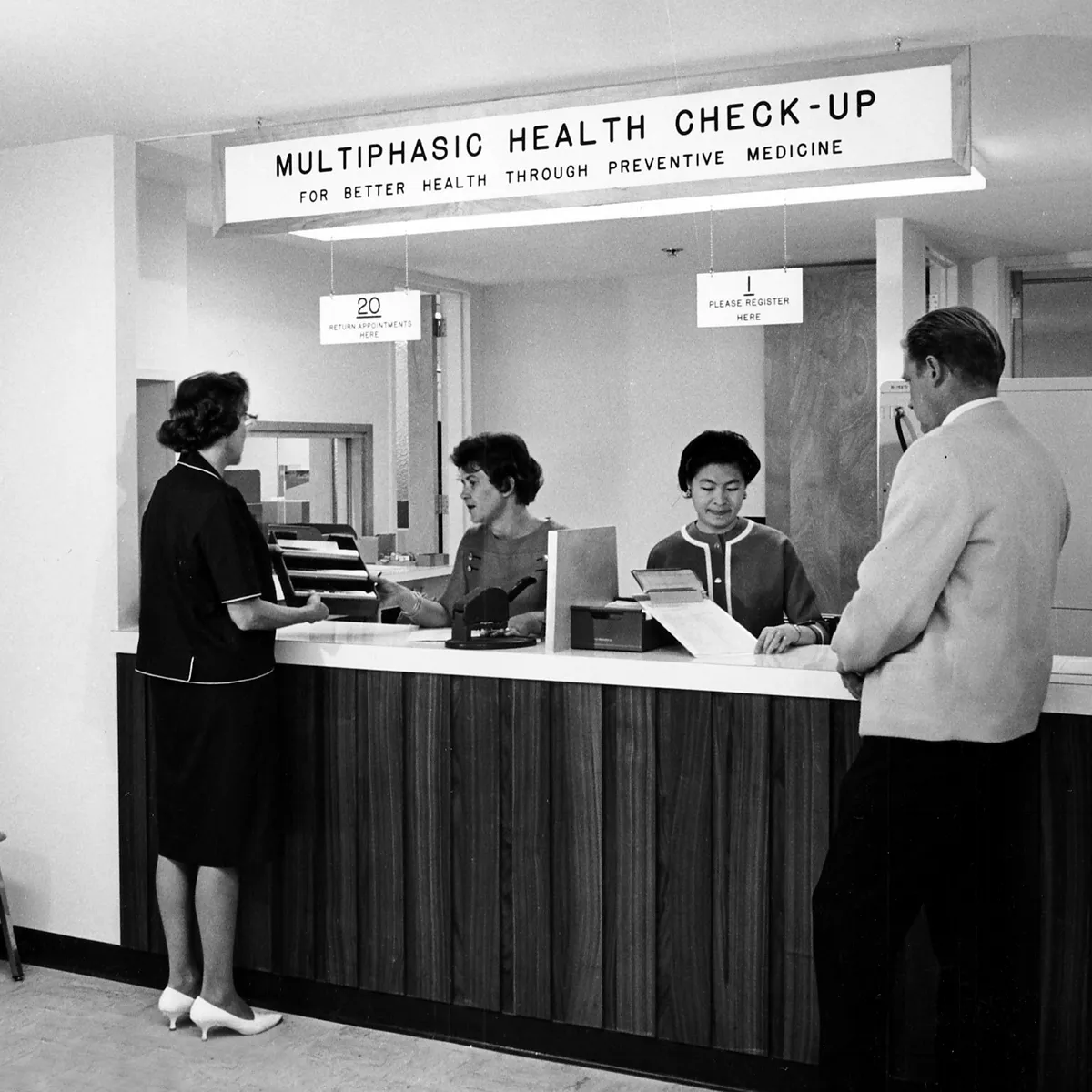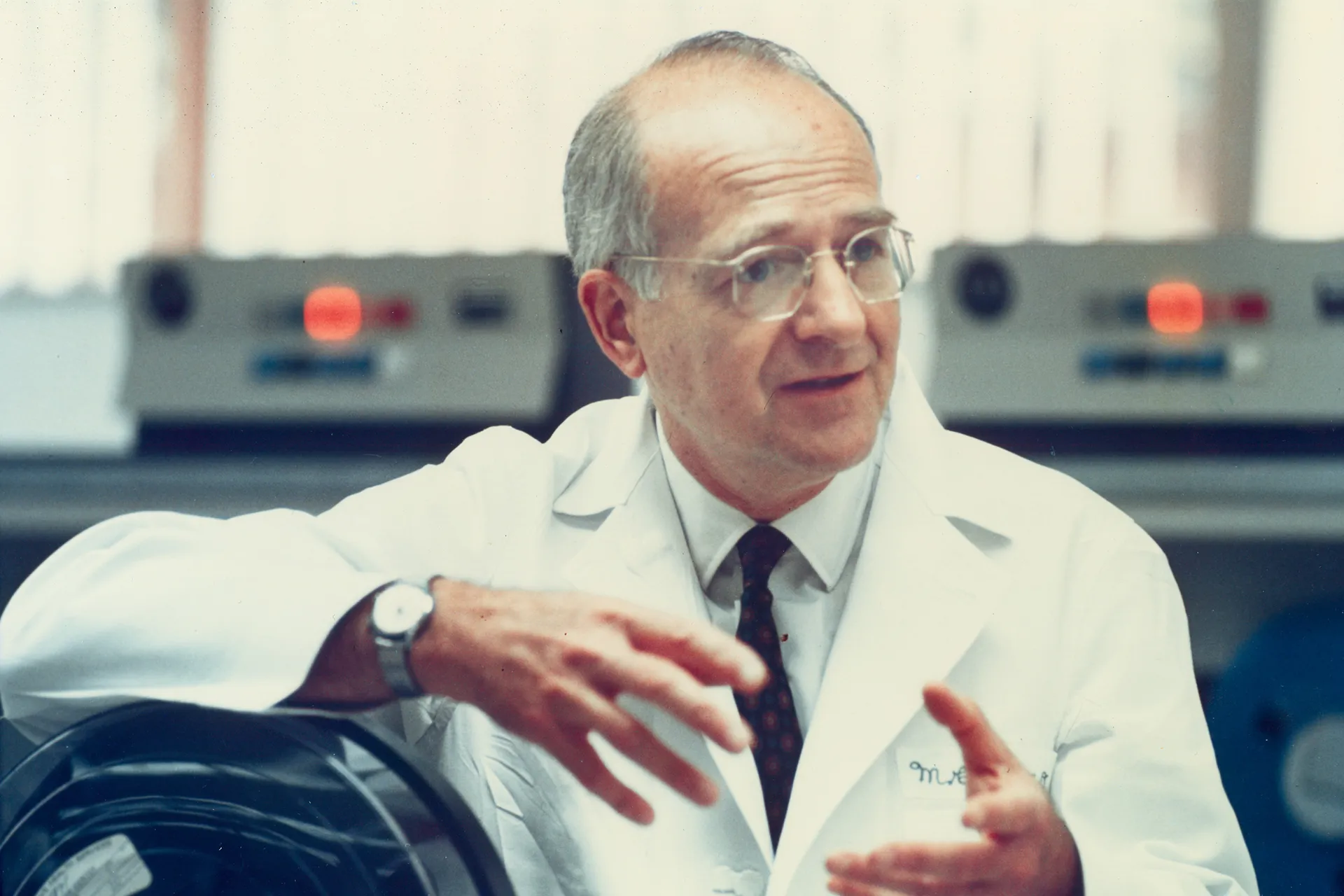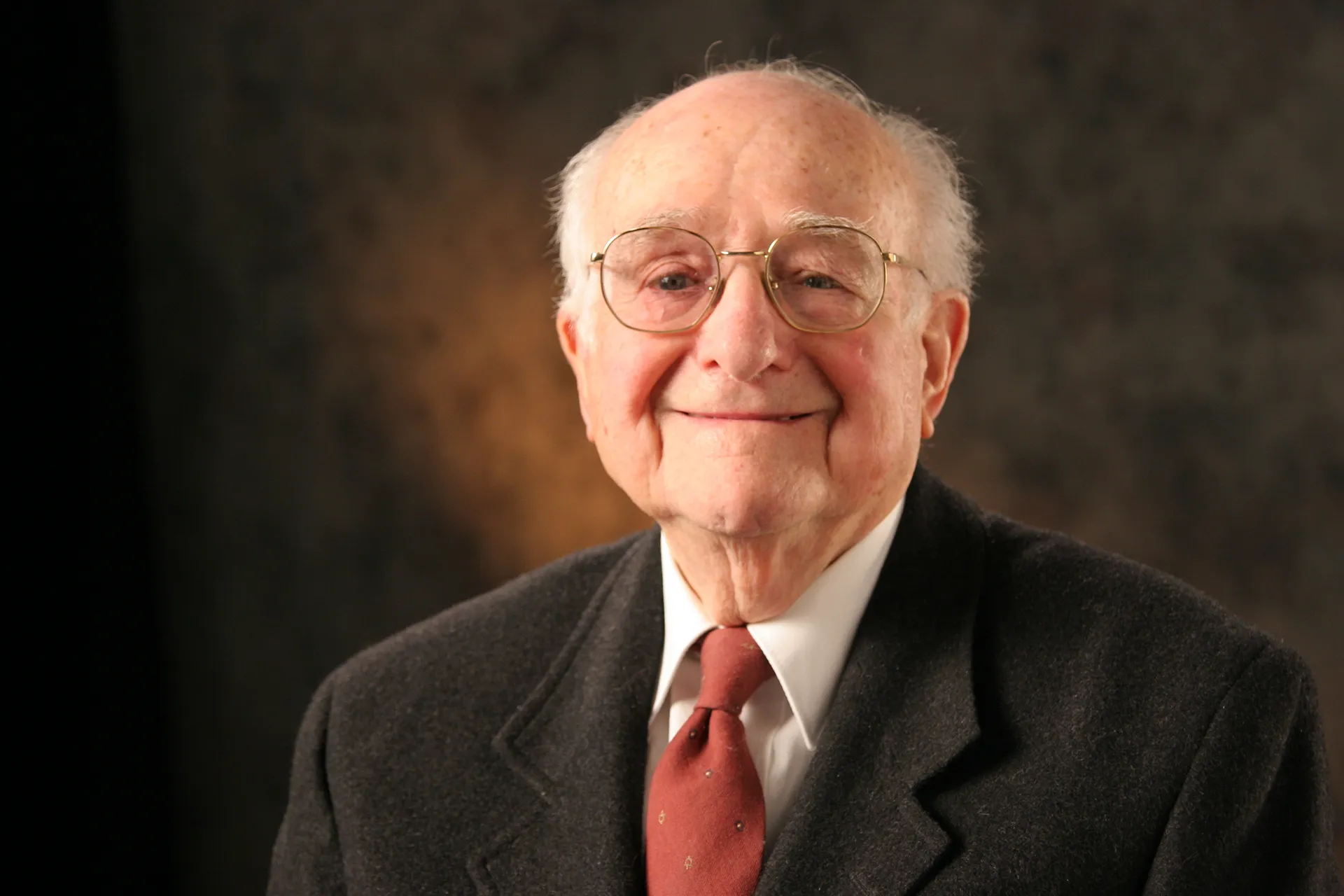Kaiser Permanente’s Morris F. Collen, MD, an original partner in The Permanente Medical Group, founder of the Kaiser Permanente Division of Research, and a pioneer in the use of computers in medicine, died on Sept. 27, 2014, at the age of 100. The cause of death was cancer, diagnosed several months after his 100th birthday.
From his time as a young doctor administering to Henry J. Kaiser’s shipyard workers in Richmond, Calif., in 1942, to his pioneering work in research and medical informatics, Morris F. Collen, MD, made internationally recognized contributions to Kaiser Permanente, the field of medical informatics, and the public’s health.
Reflecting on nearly seven decades of service to Kaiser Permanente members, Collen summed it up this way: “I have traveled the world and seen health care programs in Europe, Asia, and elsewhere, and if there is such a thing as reincarnation, I am going to come back and be a Kaiser Permanente doctor.”

Multiphasic health check-up
Collen attended the University of Minnesota, where he earned a bachelor’s degree in electrical engineering in 1935. He credits wife Frances Bobbie Collen, a registered nurse, with steering him toward a career in medicine. In 1938 he earned his MD “with distinction” from the School of Medicine. A residency in internal medicine at USC/Los Angeles County General Hospital brought him to California in 1939 and to his career-long association with Sidney R. Garfield, MD, Kaiser Permanente’s founding physician.
In 1948, Collen became one of the seven founding physicians of The Permanente Medical Group. From 1953 to 1961, he served as physician-in-chief in San Francisco.
During the 1950s, with a postwar shortage of physicians, one of Collen’s first major achievements was development of the multiphasic health checkup, a series of procedures and tests given to thousands of Kaiser Permanente members that screened for conditions such as heart disease, diabetes, and cancer.
The tests were revolutionary in that they not only saved physicians’ time but also constituted a significant experiment in preventive care.
Computers in medicine
In 1960, Garfield asked Collen to attend the Rockefeller Institute’s “Conference on Diagnostic Data Processing” in New York.
“[Dr. Garfield] thought the time had come for doctors to use computers in patient care,” Collen wrote several years ago. “Of course, he was right; and I found this meeting in New York to be very exciting.”
Upon his return, Collen founded the Department of Medical Methods Research — today’s Division of Research (DOR) — and built a research institution renowned as a trailblazer in drug safety, risk-factor epidemiology, health services and policy, genetics research, and many other areas.
By this time, Collen’s multiphasic team was screening 25,000 patients annually. They set to work to automate the 10-year-old health-screening exam, developing a prototype electronic health record. Results, including lab analyses, were fed by punch card into what was considered at that time to be a huge IBM mainframe.
In the early 1960s it was a strange idea to store data on a drive in bits and pieces to yield comprehensive patient histories and inform the treatment of patients. But it worked, and information was then available to help doctors make informed decisions and researchers identify trends that could lead to improvements in health care.

Population-based research
From this first computerized database, large-scale population research was born at the DOR. Under Collen’s leadership, Kaiser Permanente became one of a handful of places in the world to start this pioneering work in medical informatics.
Over the next 40 years, the multiphasic database alone provided material for more than 500 papers published in more than 75 medical journals. Collen’s CV includes more than 180 scientific papers.
Collen wrote six books on medical informatics and was honored by the American College of Medical Informatics (ACMI) in 1993 with the highest honor it bestows, the Morris F. Collen, MD, Medal for Outstanding Contributions to the Field of Medical Informatics.
He was elected to the Institute of Medicine of the National Academy of Science in 1981, and served as Chair of the National Library of Medicine’s (NLM) Board of Scientific Counselors from 1985 to 1987. As an NLM scholar-in-residence from 1987 to 1993, he wrote a definitive history of medical applications of the computer.

Born on November 12, 1913
On Nov. 12, 2013, Collen celebrated his 100th birthday and more than 50 years with DOR.
Well into his 100th year, Collen continued to write and consult with DOR researchers on the management of electronic health records and databases. He was also busy completing an update to his 1995 book, A History of Medical Informatics in the United States, 1950–1990, from his home in Walnut Creek, Calif.
“Now everybody has a personal health record,” Collen reflected on the occasion of his 100th birthday. “The technology has kept advancing. Our first computer took up a whole room. Now your smart phone has got everything that we had on the IBM 1440.
“You can go on your smart phone and pull up your Kaiser record! It’s fantastic! I can hardly believe it.”
In lieu of flowers, donations in Dr. Collen’s memory can be made to the “Morris F. Collen Medical Informatics Fund.” Donation checks should be addressed to “Kaiser Foundation Hospitals” and sent to Kaiser Foundation Hospitals, c/o Institutional & Planned Giving, 1800 Harrison Street, 25th floor, Oakland, CA 94612.
